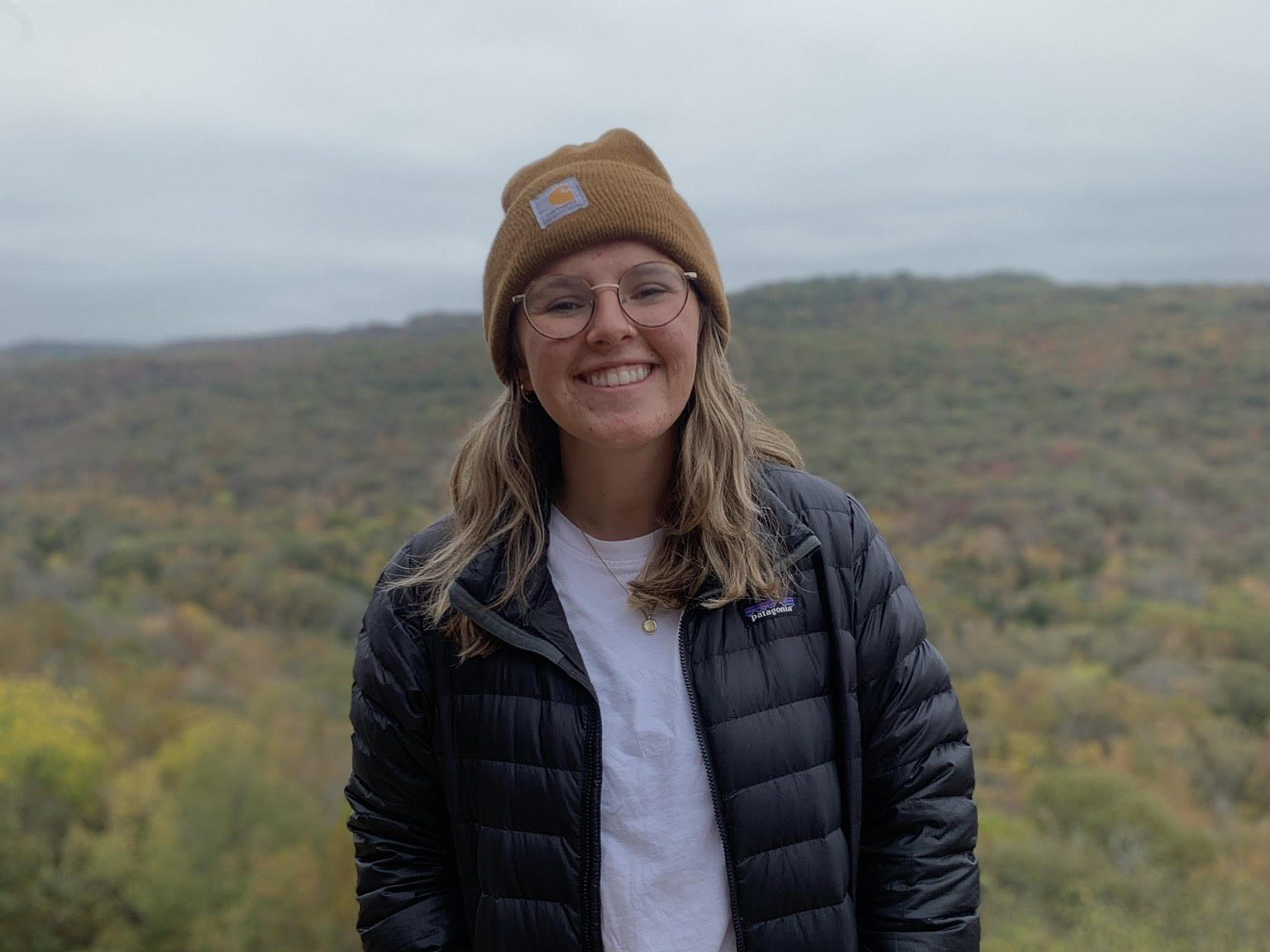With a passion for creative writing and an impressive editor’s skillset, Fuller’s position as editor-in-chief only seemed natural.
Abby Fuller ’21 came into Elon intending to follow in her dad’s geological footsteps and pursue a field in environmental studies. And then she took English 110 Writing: Argument and Inquiry.
It wasn’t long before Fuller, now an English and professional writing and rhetoric double major, realized that she not only had a passion for writing, but a special knack for it. And it wasn’t long before her professor noticed her potential as a writer and as a Colonnades editor. That professor? Tita Ramirez, associate professor of English, Fuller’s academic advisor and Colonnades faculty adviser.
But being a “closet writer,” as Ramirez puts it, was hardly the extent of Fuller’s talents that would prove serendipitous for a position with Elon’s literary and art journal.
“She’s a great critic,” Ramirez said. “She’s fantastic in terms of reading her peers’ work and giving them suggestions on how to make it stronger. Her analysis skills when we’re reading published work are really, really strong.”
Considering Ramirez’s encouragement and her personal interest in pursuing the editing side of publishing, Fuller decided to dip her feet into the Colonnades pond. She started by submitting a piece to be considered for the journal during her first year at Elon. Despite being rejected in her first attempt, Fuller tried again her junior year ─ this time for a spot on the executive staff.
Without any previous involvement in the organization but with a deeply-rooted passion for nonfiction, she landed the position of co-nonfiction editor. Not only did the position strengthen her editing skills, it also left her craving something bigger: editor-in-chief.
“I was interested in having a bigger say not only in a certain section but in the journal as a whole,” Fuller said. “Last year, I knew what was happening in nonfiction and I had a really big say in those pieces, but I also wanted to know how it all was working together more.”
A lot has changed during the past year, and Fuller’s new role in the organization is just a fraction of it. In addition to her shift from following deadlines to enforcing them, Fuller has taken on a challenge she never expected: leading an organization during a pandemic.
While it’s been a challenge to navigate, Fuller sees the virus, as well as all of the other obstacles and unrest that 2020 has presented, as opportunities for the journal to reflect all that has shaped and will continue to shape the 2020-21 academic year.
“I want all the pieces to be very applicable to this time and this situation,” Fuller said. “We want it to be something that is uniquely in conversation with 2020-2021 and the current climate.”
Fuller speculated that most submissions will revolve around the topics that have seemingly defined 2020 thus far ─ the pandemic, racial injustice and the uncertainty surrounding the country’s future, to name a few.
Ramirez also believes the journal has a “gigantic opportunity” to not only reflect the many issues that 2020 has brought about, but also the feelings of the students who are living through it. And she knows Fuller and her team will succeed in compiling the pieces that will accomplish that objective.
“We’re walking on these eggshells every single day,” Ramirez said. “I think she’s got that on her mind and feeling like it’s the responsibility of this magazine to show our readers art. And that’s the responsibility of art sometimes, to reflect humanity.”
In efforts to compile a journal that best reflects humanity and the current climate of the world, Fuller said she is placing a larger emphasis on interconnectedness─both in the pieces that comprise the journal, but also among her team.
“I feel like everything should go together in the sense that it’s a cohesive journal, not just a bunch of really good pieces individually,” Fuller said. But she also wants the sense of interconnectedness to extend beyond the journal and hopes that the nature of Colonnades during her reign “feels more like a community and less like an individualized, everyone does their own work.”
Despite the complications introduced this semester, Fuller is just eager to get started. And the best part? She gets to hold a physical copy of that humanity-reflecting journal at the end of this.
“To have an actual, physical copy of it is really exciting,” Fuller said. “It’s kind of silly, but it’s been a dream of mine to write a book one day. And, obviously this isn’t me writing a book, but it’s a baby step.”



